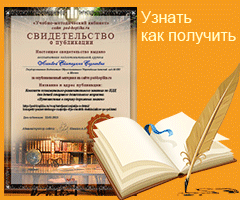Внеклассное мероприятие по английскому языку для 9-10 класса. Сценарий
Автор: Ильина Нина Леонидовна, учитель английского языка МБОУ СОШ №207 г. Новосибирска
Описание материала: Предлагаю вам сценарий вечера «The Great Unknown», посвящённого английскому поэту и драматургу Уильяму Шекспиру. Вечер построен в форме общения учащихся 9 класса за круглым столом. Он проводился как открытое мероприятие для учителей английского языка. Представленный материал может быть полезен учителям английского языка, работающим с учащимися 9 - 10 классов, и может использоваться во внеклассной работе.
Цель мероприятия: познакомиться с жизнью и творчеством великого поэта, некоторыми его сонетами в оригинале и переводах Маршака, Финкеля, Пастернака.
Задачи: практика учащихся в монологической речи, тренировка умений выразительного чтения сонетов, развитие коммуникативной компетенции, воспитание любви к литературе страны изучаемого языка, развитие эстетического вкуса.
Оборудование:
- слайды: портрет У. Шекспира; виды г. Стретфорда на Эйвоне; театр «Глобус» (современное здание и времён Шекспира); рисунки учащихся по сюжетам произведений У. Шекспира;
- лютневая музыка 15- 16 века;
- музыкальная запись А. Пугачёвой «Сонет»;
- плакаты с цитатами из произведений У. Шекспира.
Ход вечера:
(звучит лютневая музыка 15 - 16 в. Н. Нигвино - Ричеркар)
Compere: Hello everyone! The last half of the 16 and the beginning of the 17 centuries are known as the Golden Age of English literature. It was the time of the English Renaissance and it is even called” The Age of Shakespeare". (на экран проецируется портрет У. Шекспира.)
Our party is dedicated to the greatest and the most famous of English writers and probably, the greatest playwright who has ever lived, William Shakespeare. We are going to recite some of his wonderful sonnets and get acquainted with their Russian translations by Marshak, Pasternak, Finkel.
Pupil 1:
Sonnet 91
Some glory in their birth, some in their skill,
Some in their wealth, some in their bodies’ force;
Some in their garments, though new- fangled ill;
Some in their hawks and hounds, some in their horse;
And every humour hath his adjunct pleasure
Wherein it finds a joy above the rest.
But these particulars are not my measure;
All these I better in one general best.
Thy love is better than high birth to me,
Richer than wealth, prouder than garments’ cost,
Of more delight than hawks or horses be,
And having thee, of all men’s pride I boast;
Wretched in this alone, that thou mayst take
All this away, and me most wretched make.
Pupil 2: And I’d like to recite the translation of the sonnet by Marshak:
Кто хвалится родством своим со знатью,
Кто силой, кто блестящим галуном,
Кто кошельком, кто пряжками на платье,
Кто соколом, собакой, скакуном.
Есть у людей различные пристрастья,
Но каждому милей всего одно.
А у меня особенное счастье-
В нём остальное всё заключено.
Твоя любовь, мой друг, дороже клада,
Почётнее короны королей,
Наряднее богатого наряда,
Охоты соколиной веселей.
Ты можешь всё отнять, чем я владею,
И в этот миг я сразу обеднею.
Pupil 3: I say, would you like to listen to my own version of this sonnet?
Compere: Why not?
Pupil 3:
Кто славится своим знатнейшим родом,
Руками, силою, богатством,
Кто тряпкою своей с златым шитьём,
Своим скотом, собаками, орлами.
У каждого сеньора есть своё,
Чем мог бы он гордиться, увлекаться.
Но для меня всё это лишь нелепое волненье,
Которое не стоит и гроша.
Твоя любовь заменит мне всё это
И будет восхищеньем для меня.
Зачем богатство мне, одежда, кони?
Зачем мне жизнь, коль нету в ней тебя?
С твоей любовью душа жить будет вечно,
А если нет тебя, то нет, увы, души.
Compere: Not bad, indeed! Well, to continue.
In spite of Shakespeare’s fame, we know very little about his life because he didn’t write any diaries and reminiscences. But it’s true to fact that he was born on the 23 of April, 1564 in Stratford- on- Avon, a small town in the centre of Great Britain. (на экран проецируются виды г. Стрэтфорда на Эйвоне)
In his childhood William went to the local Grammar School, where besides reading and writing he was taught Latin and Greek.
Pupil 4: I’d like to add that at that time there were no theatres in England. Groups of actors travelled from town to town and played in different places, usually out- of- doors. Sometimes actors came to Stratford. Young William went to see all their shows and liked them very much. He wanted to become an actor. Sometimes he wrote little plays himself and staged them with his friends. At the age of 18 William married Anna Hathaway, who was 9 years older than her husband. Their first daughter was born in 1583. And then twins- a son and a daughter followed in 1585.
Pupil 5: By the way, I know that W. Shakespeare lived in Stratford until he was about 21. Then he left for London. I wonder why he left his native town.
Pupil 4: It is unknown. Probably life in Stratford was hard and he wanted to earn some money?
Pupil 5: Maybe. In London William joined a group of actors. The famous Globe Theatre was the centre of
London‘s theatrical life. (на экран проецируются виды театра «Глобус»). Shakespeare played on its stage and wrote plays for this theatre. Would you like to listen about the theatre of the 16 century?
Pupils: Yes, certainly.
Pupil 5: Well, in the middle of the square there was a kind of a house. There the actors dressed and kept the things used in the performance. In front of it there was a platform on which the actors played. They came out of the house to the stage through two large doors. In front of the stage there was a large yard with three balconies round it. People came here to see performances. The yard and the greater part of the stage were open to the sky.
Compere: Sorry, do you happen to know that women’s parts were played by boys or young men?
Pupil 5: Yes, indeed. It’s just that I was going to say. Besides, an actor played 2 or 3 parts in one performance.
Pupil 6: The actors were often very good. They could play, sing and dance. The performance began at 3 o’ clock. Londoners loved their theatre very much. It is interesting to know that everybody went to the theatre in London- both young and old, rich and poor. Poor people stood in the yard or sat on the ground. The rich sat in the balconies and the aristocrats were allowed to sit on the stage.
Pupil 7: How interesting!
Pupil 8:
Sonnet 90
Then hate me when thou wilt; if ever, now;
Now, while the world is bent my deeds to cross,
Join with the spite of fortune, make me bow,
And do not drop in for an after- loss:
Ah, do not, when my heart hath ‘scaped this sorrow,
Come in the rearward of a conquer’d woe;
Give not a windy night a rainy morrow,
To linger out a purposed overthrow.
If thou wilt leave me, do not leave me last,
When other pretty griefs have done their spite,
But in the onset come; so shall I taste
At first the very worst of fortune’s might,
And other strains of woe, which now seem woe,
Compared with loss of thee will not seem so.
(звучит песня « Сонет» в исполнении А. Пугачёвой, перевод С. Маршака)
Уж если ты разлюбишь- так теперь,
Теперь, когда весь мир со мной в раздоре.
Будь самой горькой из моих потерь,
Но только не последней каплей горя!
И если скорбь дано мне превозмочь,
Не наноси удара из засады.
Пусть бурная не разрешится ночь
Дождливым утром- утром без отрады.
Оставь меня, но не в последний миг,
Когда от мелких бед я ослабею.
Оставь сейчас, чтоб сразу я постиг,
Что это горе всех невзгод больнее,
Что нет невзгод, а есть одна беда-
Твоей любви лишиться навсегда.
Compere: And one more thing about the theatre: it played a very important part in people’s lives as there were no newspapers, no radio or television in those days. They came to the theatre not only for pleasure, they came to hear the news, to learn something of the history of England or of some other country. They were taught the great science of life there.
Pupil 7: As you know, W. Shakespeare was an actor, a poet and a dramatist at the same time. All in all, he wrote 37 plays, 2 poems and 154 sonnets where he showed his creative genius.
Sonnet 130: (в качестве фона тихо звучит лютневая музыка «Спандольетта»)
My mistress’ eyes are nothing like the sun;
Coral is far more red than her lips’ red;
If snow be white, why then her breasts are dun;
If hairs be wires, black wires grow on her head.
I have seen roses damask’d, red and white,
But no such roses see I in her cheeks;
And in some perfumes is there more delight
Than in the breath that from my mistress reeks.
I love to hear her speak, yet well I know
That music hath a far more pleasing sound;
I grant I never saw a goddess go;
My mistress, when she walks, treads on the ground.
And yet, by heaven, I think my love as rare
As any she belied with false compare.
Pupil 9:
The translation of the sonnet by S. Marshak:
Её глаза на звёзды не похожи,
Нельзя уста кораллами назвать,
Не белоснежна плеч открытых кожа,
И чёрной проволокой вьётся прядь.
С дамасской розой, алой или белой,
Нельзя сравнить оттенок этих щёк.
А тело пахнет так, как пахнет тело,
Не как фиалки нежной лепесток.
Ты не найдёшь в ней совершенных линий,
Особенного света на челе.
Не знаю я, как шествуют богини,
Но милая ступает по земле.
И всё ж она уступит тем едва ли,
Кого в сравненьях пышных оболгали.
Pupil 6:
Now listen to the translation of the sonnet by A. Finkel: ( фоновая музыка - сюита для лютни В. Галилеи)
Её глаза не схожи с солнцем, нет;
Коралл краснее этих алых губ;
Темнее снега кожи смуглый цвет;
Как проволока, чёрный волос груб;
Узорных роз в садах не перечесть,
Но их не видно на щеках у ней,
И в мире много ароматов есть,
Её дыханье слаще и сильней.
В её речах отраду нахожу,
Хоть музыка приятнее на слух;
Как шествуют богини, не скажу,
Но ходит по земле, как все, мой друг.
И я клянусь- она не хуже всё ж,
Чем те, кого в сравненьях славит ложь.
Compere: Which variant did you like more?
Pupil 10: I feel both are superb.
The first period (1590- 1600) of Shakespeare’s creative work consists of comedies and historical dramas. In this period he wrote such histories as “King Henry the IV”, “King Henry the V”, “King Richard the II”, “King Richard the III” etc. Here the author showed historical events and dramatic characters. Speaking about his famous tragedies, I can say that they appeared in the second period of his literary work between 1600 and 1608. In the plays of this time, the dramatist reaches his full maturity. These are “Hamlet”, “King Lear”, “ Macbeth”, “ Othello”. “Romeo and Juliet”, I think, is one of his best plays. It’s a tragedy but it is full of love, youth and humanism.
Compere: How right you are! It is my favourite play, too. I was greatly impressed when reading it for the first time. Well, then. The dramatist’s plays of the third period (1609- 1611) are called Romantic Dramas. They are “The Tempest”, “The Winter’s Tale” etc. In 1612 Shakespeare left London for Stratford. He didn’t act any more. Since 1613 he no longer wrote plays. Nobody knows what he did during the last years of his life. Eventually, he died on the 23 of April 1616. It’s incredible but true that he died on his birthday at the age of 52.
Pupil 4: (фон- английская народная лютневая музыка 16 в.)
Sonnet 66:
Tired with all these, for restful death I cry;
As, to behold desert a beggar born,
And needy nothing trimm’d in jollity,
And purest faith unhappily forsworn,
And gilded honour shamefully misplaced,
And maiden virtue rudely strumpeted,
And right perfection wrongfully disgraced,
And strength by limping sway disabled,
And art made tongue- tied by authority,
And folly doctor- like controlling skill,
And simple truth miscall’d simplicity,
And captive good attending captain ill:
Tired with all these, from these would I be gone,
Save that, to die, I leave my love alone.
Pupil 5:
The translation of the sonnet by B. Pasternak:
Измучась всем, я умереть хочу.
Тоска смотреть, как мается бедняк,
И как шутя живётся богачу,
И доверять и попадать впросак,
И наблюдать, как наглость лезет в свет,
И честь девичья катится ко дну,
И знать, что ходу совершенствам нет,
И видеть мощь у немощи в плену,
И вспоминать, что мысли замкнут рот,
И разум сносит глупости хулу,
И прямодушье простотой слывёт,
И доброта прислуживает злу.
Измучась всем, не стал бы жить и дня,
Да другу трудно будет без меня.
Compere: It must be admitted that British people are very proud of their great poet and call him” Our National Bard”, “The Immortal Poet of Nature”, “The Swan of Avon”, “The Great Unknown”. Moreover, W. Shakespeare is beloved by Russian people. His plays are staged in our theatres as well as all over the world and are always a great success with the public.
(разыгрывается сценка из трагедии Шекспира «Король Лир»)
King Lear: My dear daughters, I’m very old and tired. I can’t be the King of Britain any more. I want to divide the country into three parts and give one part to each of you. And you’ll be the queens of your parts. But first you must tell me how much you love me. Then I will know which of you must get the better part.
Goneril: Dear father, I love you very much. I love you more than my beauty, more than my life. No child loves his father more than I do.
Regan: If only you knew what you mean for me. You are the dearest man in my life. I can’t imagine myself without you.
King Lear: I’m very glad to hear that. And what would you like to tell me, Cordelia?
Cordelia: I don’t understand why my sisters say they love you more than anything else. They are married. Don’t they love their husbands? You are my father, and of course, I love you. But when I marry I’ll love my husband, too.
King Lear: Oh, it’s not the right thing you’ve told me! I’m disappointed. I don’t want to have such a daughter! You’ll get nothing! Go away!
Compere: Well, dear guests! Have you recognized the play? Certainly, it’s “King Lear”.
And now let’s read and translate some famous quotations and interesting expressions from Shakespeare’s plays (the task for the pupils, the posters are on the walls of the classroom):
-The beginning of the end - Начало конца.
-All is well that ends well - Всё хорошо, что хорошо кончается.
Life is not all cakes and ale - Жизнь прожить - не поле перейти.
Much ado about nothing - Много шума из ничего.
Sweets to the sweet - Прекрасное - прекрасной.
Brevity is the soul of wit - Краткость - сестра таланта.
To win golden opinions - Заслужить благоприятное мнение.
The wrilling of time - Превратности судьбы.
Compere: All right. And now I suggest our guests work a little bit. Please match the beginnings with the endings of some Shakespeare’s plays, translate them into Russian and say if they are comedies or tragedies. (на экран проецируется задание)
The beginnings:
-A Midsummer
-Anthony and
-The Taming
-The Comedy
-Hamlet
-The Merry Wives
-Julius
The endings:
-Caesar
-Of Windsor
-Prince of Denmark
-Of the Shrew
-Night’s Dream
-Cleopatra
-Of Errors
Compere: Are you ready? Let’s check up the answers:
-“A Midsummer Night’s Dream”, a comedy -“Сон в летнюю ночь”
-“Anthony and Cleopatra”, a tragedy -“Антоний и Клеопатра”
-“The Comedy of Errors”, a comedy - “Комедия ошибок”
-“The Taming of the Shrew”, a comedy -“Укрощение строптивой”
-“Hamlet, Prince of Denmark”, a tragedy -“Гамлет, Принц Датский”
-“The Merry Wives of Windsor”, a comedy -“Виндзорские проказницы”
-“Julius Caesar”, a tragedy -“Юлий Цезарь”
Compere: (звучит сюита для лютни Франческо да Милано)
All is well that ends well. Our party is coming to an end. I do hope you enjoyed it. Thank you so much for your attention. Enjoy reading Shakespeare!
Рекомендуем посмотреть:
Конспект урока по английскому языку для 5 класса по теме «Времена года»
Внеклассное мероприятие по английскому языку на тему: Хэллоуин, 5 класс
Информационные технологии на уроках английского языка
Конспект интегрированного урока «Английский язык и физика» в 10 классе
Конспект урока английского языка в 5 классе по теме: Праздники


